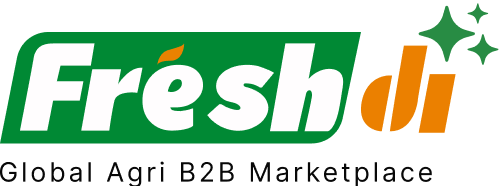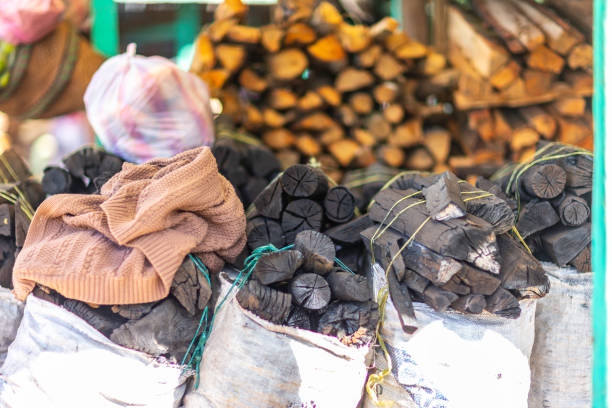Introduction – Current State of Play: The Charcoal Sector in Vietnam
Vietnam’s charcoal industry is going through a whirlwind of changes, and if you’re in the business of sourcing or trading charcoal, you’ve got to pay attention. As of Q3 2025, a series of rapid developments—ranging from international trade tensions to local environmental policies—are reshaping how charcoal is produced, priced, and exported in Vietnam.
Let’s start with the big one: the U.S. tariffs. These new trade barriers slapped on Vietnamese goods in August 2025 are already causing ripples. While the focus has been on industries like footwear and seafood, the charcoal sector isn’t immune. Tariffs have a way of shrinking margins and complicating logistics, especially for exporters relying on U.S. buyers.
Then there’s the energy crunch. Vietnam’s industrial boom is driving up coal imports like never before. Coal now powers half of Vietnam’s electricity, and with heatwaves pushing demand through the roof, energy-intensive sectors like charcoal production are feeling the burn—literally. Costs are rising, and producers have to adjust quickly.
And let’s not forget the Emissions Trading Scheme (ETS). Vietnam is rolling out its pilot carbon credit system, targeting big polluters like steel and thermal power. While charcoal producers may not be the primary targets yet, the writing is on the wall: sustainable practices aren’t optional anymore.
In short, it’s a mixed bag. There’s opportunity, but also a lot of moving pieces. That’s why staying informed and flexible is more critical than ever.
Deep Dive – Breaking News: Critical Updates & Their Effects
Despite the turbulence, Vietnam’s charcoal market is booming. In 2024, the market hit 2.12 million tons, and it’s expected to grow at a CAGR of 5.70%, reaching nearly 3.69 million tons by 2034. That’s no small feat.
Global Demand on the Rise
Why the growth? It’s partly thanks to a worldwide push for cleaner, renewable fuel sources. More countries are ditching fossil fuels for biomass alternatives, and Vietnamese charcoal—especially from coconut shells and hardwood—is in high demand. Vietnam’s ability to produce at a low cost while maintaining quality gives it a competitive edge, particularly in Europe, Japan, and the Middle East.
Innovation is Fueling Growth
Manufacturers are getting creative. We’re talking flavored briquettes, instant-light charcoal, and even eco-certified products. The Forest Stewardship Council (FSC) label is becoming a badge of honor, helping exporters break into strict markets like the EU and Canada.
Strengthening the Supply Chain
Vietnamese companies are investing heavily in local supply chains to reduce reliance on imports and boost traceability. With global supply chain risks still fresh in everyone’s minds post-COVID, this is a smart move.
Infrastructure & Investment
You’ll also see money flowing into modern ports and logistics, making exports smoother and faster. Plus, foreign investors are betting big on Vietnam. They’re setting up production facilities here, aiming to capitalize on the country’s strategic location and business-friendly policies.
New Trade Agreements
In June 2025, the U.S. and Vietnam signed a new trade pact that includes reduced tariffs and stricter rules of origin. While this benefits some sectors more than others, it’s nudging charcoal producers to go local, get certified, and diversify their export markets.
Top 3 Verified Charcoal Suppliers in Vietnam – Adapting to Today’s Market
Picking the right supplier in this fast-moving market isn’t just about price anymore. It’s about reliability, sustainability, and adaptability. Based on verified insights from the Freshdi B2B platform—which uses real-time RFQ data and supplier performance analytics—we’ve shortlisted the top 3 charcoal suppliers in Vietnam for Q3 2025.
1. Eximco Nam Anh
- Specialty: High-quality coconut charcoal briquettes
- Certifications: FSC-certified, ISO-compliant
- Why They Stand Out: Known for consistent quality and timely exports, Eximco Nam Anh has adapted well to recent shipping cost hikes and policy changes.
- Freshdi Insight: Ranked consistently in monthly RFQ trends as a top responder with high buyer satisfaction.
2. GREENLIFE ASIA., JSC
- Specialty: Eucalyptus and hardwood charcoal for BBQ usage
- Certifications: FSC, HACCP
- Why They Stand Out: Their edge lies in product diversity and a strong sustainability record. They’ve been actively seeking alternative markets amid U.S. trade uncertainty.
- Freshdi Insight: Frequently highlighted in “Suppliers of the Month” rankings for consistent RFQ engagement.
3. CONG TY TNHH XUAT NHAP KHAU NGUYEN BINH
- Specialty: Charcoal powder for religious and incense applications
- Certifications: Organic-certification in progress, ISO-compliant
- Why They Stand Out: They’ve carved a niche in non-industrial charcoal applications, which are less impacted by energy cost fluctuations.
- Freshdi Insight: Rising in Freshdi’s RFQ trends due to demand for niche-use charcoal products.
Dynamic Ranking Note
Top suppliers can shift based on real-time performance, new certifications, or trade activity. Platforms like Freshdi regularly update “Suppliers of the Month/Quarter” rankings using live RFQ data, buyer reviews, and shipment success rates to reflect the most relevant players.
Market Navigation – Strategic Responses to the Current Charcoal Landscape in Vietnam
So, how should you approach sourcing charcoal from Vietnam right now?
Watch Those Trade Winds
With U.S. tariffs in place, exporters are pivoting. If your supply chain is heavily dependent on U.S. routes, now’s the time to diversify. Consider markets in Europe, South Korea, or the Middle East, where demand is rising and trade policies are more stable.
Factor in Energy Costs
Charcoal production is energy-heavy. With coal prices and electricity usage spiking due to heatwaves and industrial expansion, expect some price volatility. Suppliers that have invested in energy-efficient technology or renewables will likely offer more stable pricing.
Sustainability is Non-Negotiable
With Vietnam’s Emissions Trading Scheme kicking in, producers are incentivized to go green. Look for suppliers using waste biomass, low-emission kilns, or certified sustainable wood sources. These aren’t just ethical decisions—they’re smart business moves that help avoid future regulatory headaches.
Short-Term Outlook by Product Type
- Coconut Charcoal: Stable export performance, especially to Europe and Japan. Ideal for BBQ and industrial fuel.
- Hardwood Charcoal: Watch closely—rising energy costs may impact production.
- Charcoal Powder: Growing niche market for incense and religious purposes. Less volatility and high profit margins.
Conclusion – Key Takeaways for Businesses in a Fast-Moving Market
Vietnam’s charcoal market in Q3 2025 is a complex but promising landscape. Between trade headwinds, rising energy costs, and sustainability shifts, businesses need to move smart and fast.
Here’s what matters most:
- U.S. tariffs are shaking up trade flows—diversify your markets.
- Energy costs are climbing—work with suppliers using efficient, low-emission production.
- Sustainability is the future—certifications and traceability will open international doors.
- Product innovation and local sourcing are giving top suppliers a competitive edge.
Checklist for Charcoal Buyers in 2025
✅ Verify supplier certifications (FSC, ISO, etc.)
✅ Ask about production energy sources
✅ Monitor tariff changes in target export markets
✅ Use platforms like Freshdi to track real-time RFQ trends
✅ Diversify your supplier base by product type and region
How Freshdi Empowers You
Freshdi makes sourcing smarter. It offers:
- Live RFQ data to detect market shifts early
- Verified supplier profiles with performance metrics
- Alerts on trade policy changes and demand trends
- Dynamic rankings to see who’s delivering results
In short, Freshdi helps you stay one step ahead in a rapidly changing charcoal market.
FAQs
1. What types of charcoal are most in demand in Vietnam’s export market right now?
Coconut charcoal and eucalyptus hardwood charcoal are leading the pack, especially for BBQ and industrial fuel applications.
2. How are U.S. tariffs affecting Vietnam’s charcoal exporters?
While not directly targeted, the overall export slowdown is impacting logistics and increasing costs across sectors, including charcoal.
3. Are there eco-friendly charcoal options available from Vietnam?
Yes! Many suppliers now offer FSC-certified charcoal made from sustainable sources like coconut shell waste and fast-growing hardwoods.
4. How can I verify a charcoal supplier’s legitimacy?
Use B2B platforms like Freshdi to check certifications, buyer reviews, and live RFQ activity.
5. What’s the safest charcoal product category for stable pricing?
Charcoal powder for religious use tends to be more stable due to less exposure to energy price fluctuations and shipping complexities.
References
- Hardest-hit Vietnam risks losing $25 billion from US tariffs, UN estimates – Reuters
- Vietnam asks United States to reconsider seafood export ban – Reuters
- Vietnam’s industrial boom drives global coal imports – Reuters
- Vietnam launches emissions trading scheme – Reuters
- Heatwave lifts coal demand in Vietnam – Argus Media
- Vietnam Charcoal Market Outlook – Research and Markets
- Rise in Charcoal Export Market Trends – Vietnam Charcoal
- Vietnam’s infrastructure upgrades – Lao Dong News
- US-Vietnam Trade Agreement – AInvest


